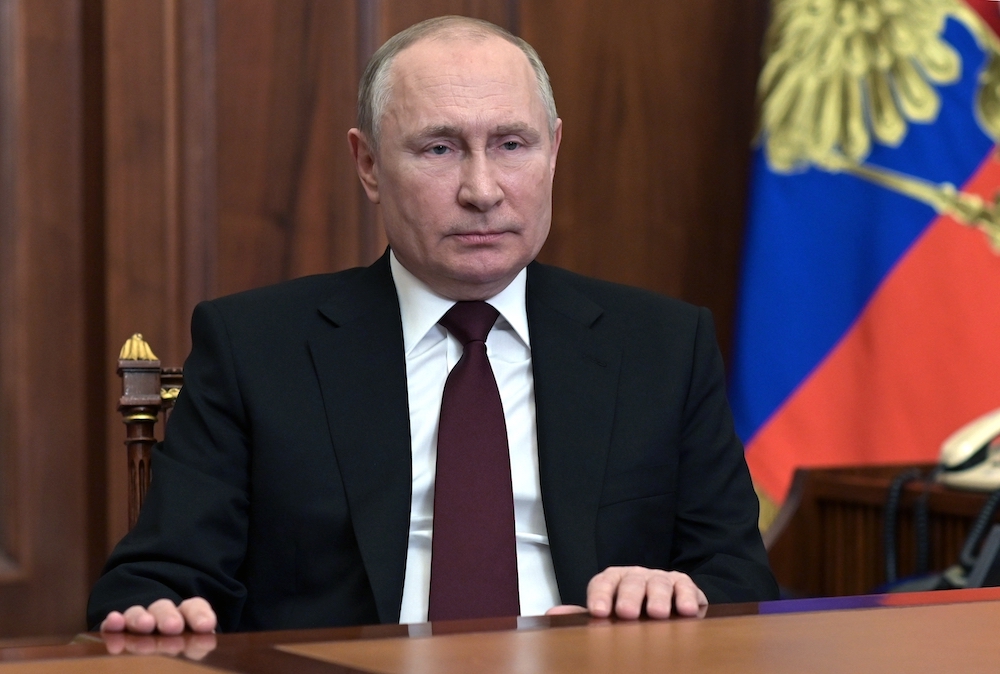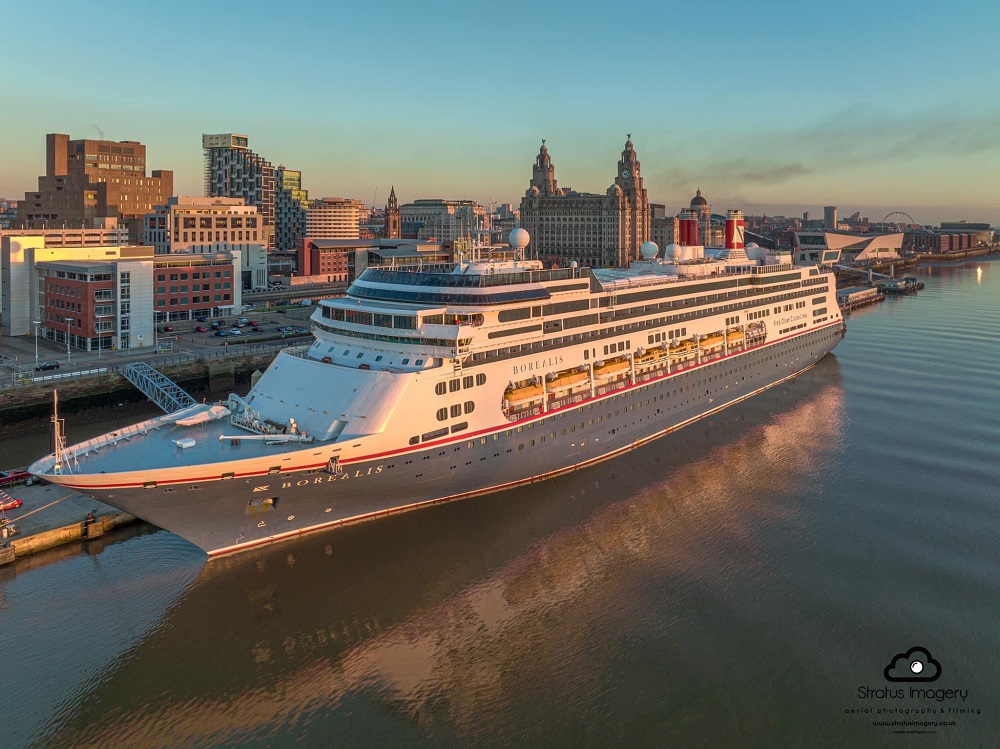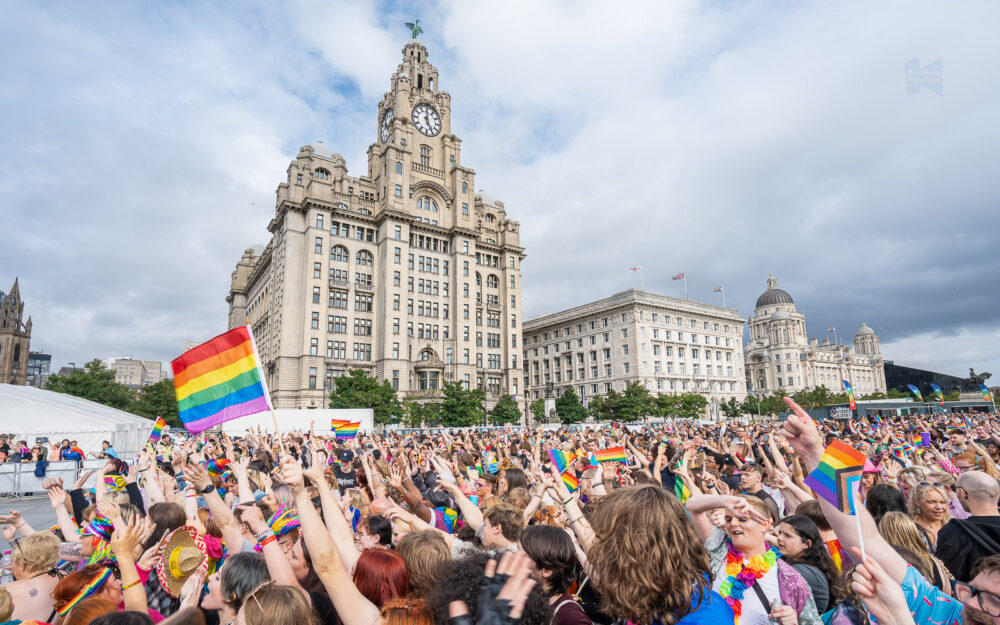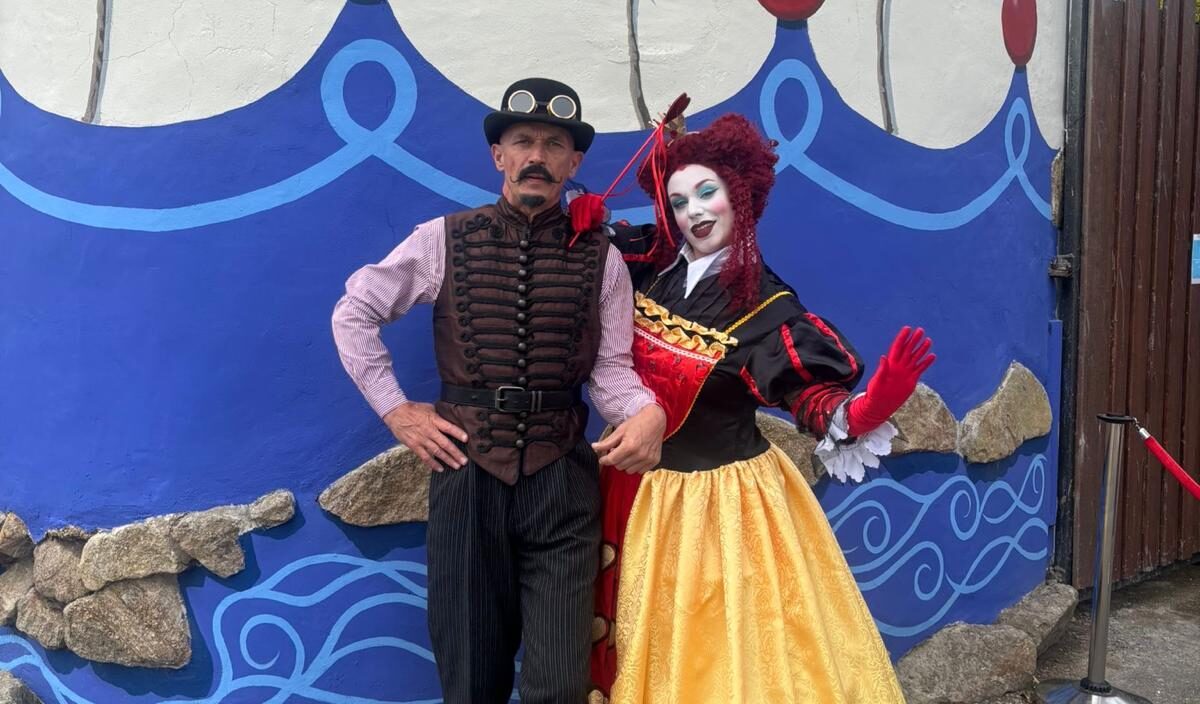
Latest
How likely is it that Russia will launch a nuclear attack? Key questions answered.
3 years ago

Vladimir Putin has said its strategic nuclear weapons forces are on high alert, prompting fears over what could happen next.
Vladimir Putin put Russia’s strategic nuclear weapons forces on high alert on Sunday, prompting fears over what could happen next in the conflict between Russia and Ukraine.
The Russian president blamed “unfriendly actions in the economic sphere”, which is a reference to economic sanctions, and claimed leading Nato members had made “aggressive statements” towards the nation, prompting him to take the action.
Kremlin spokesman Dmitry Peskov on Monday blamed the escalation on remarks given by Foreign Secretary Liz Truss, although it is not clear which remarks he was alluding to.
This claim was later hit back by an ally of Ms Truss, who stated that nothing the Foreign Secretary has said “warrants that sort of escalation”.
But what could happen now following Mr Putin’s orders? Here’s everything you need to know.
What has Vladimir Putin said regarding nuclear weapons?
During a meeting on Sunday, Russian television footage showed Mr Putin meeting with his defence minister and the chief of the general staff, and instructing them to put the nuclear weapons on a “special regime of combat duty”.
Outlining what this means, Patricia Lewis, director of the international security programme at the thinktank Chatham House, told the PA news agency: “What we think has happened is that under peacetime, Russia has checks and balances in place so that they can’t launch nuclear weapons.
“So in order to be able to launch nuclear weapons, President Putin has to change the status from peacetime to combat, hence the phrase he’s ‘put his forces on special mode of combat duty’. I think we would probably call it combat readiness but it’s hard because of different languages and different meanings.”
“What he seems to have done is created the legal platform to be able to launch if he wishes,” she added.

A long-range Tu-22M3 bomber of the Russian Aerospace Forces (AP/Press Association Images)
Deputy director general of RUSI (Royal United Services Institute), Professor Malcolm Chalmers, said that wording had not been used before, so it is not “entirely clear” what was meant.
“I haven’t seen any reporting of changes in Russian nuclear forces postures,” he told PA. “Obviously I don’t have access to classified intelligence but I haven’t seen reports as such.
“So it’s not clear how that changes. It may be something to do with the particular authorisation mechanisms between the president and the nuclear forces or it may be nothing at all. What is clear is that this is designed to be something that we need to listen to. It’s designed to be a reminder that Russia is a nuclear weapons power.”
How likely is a nuclear attack?
Defence Secretary Ben Wallace attempted to pour cold water on fears of a nuclear war, stating that while he understood the concerns, the phrasing is a “battle of rhetoric”.
During media interviews on Monday, he told Sky News he “was not going to speculate” on what Mr Putin might do in the future.
Later on, he told BBC Breakfast: “We don’t see or recognise in the sort of phrase or the status he described as anything that is a change to what they have currently as their nuclear posture.
“This is predominantly about Putin putting it on the table just to remind people, remind the world, that he has a deterrent.
“We will not do anything to escalate in that area, we will not do anything to feed any miscalculation, we take it very, very seriously.

“But at the moment this is a battle of rhetoric that President Putin is deploying, and we just have to make sure we manage it properly.”
Chairman of the Foreign Affairs Committee Tom Tugendhat meanwhile stated that Russia sees battlefield nuclear weapons as simply “a bigger bang” and could give a military order to use them.
Some experts stated that it is unclear whether or not Putin would go ahead with a nuclear attack, while others quashed the possibility, stating that the mutual destruction would be too great.
Ms Lewis said: “Now he’s moved to a situation of combat, he can [launch a nuclear attack]. But will he? We don’t know. This is the problem.
“Of course, he wants to frighten us. And I think Russia has long worked out that the West is far more frightened of Russian nuclear weapons than Russia is frightened of Western nuclear weapons, and I think that’s true.”
She added: “There is a possibility to retaliate against conventional force with nuclear weapons under Western doctrines, but it is generally believed that would be a last resort.
“I think there’s been a sense over the last decade that Putin, along with [North Korean leader] Kim Jong-Un and [Former US President] Donald Trump, are people who could have just launched a nuclear weapon. So there’s always been this unpredictability… I don’t want to overplay it but I don’t want to downplay it either.”
Professor Chalmers meanwhile said that he thought it was “unlikely”, adding: “Because any use of nuclear weapons would open up such a Pandora’s box, and the possibility of escalation to the use of more nuclear weapons once one country has used them, the pressure on other nuclear weapon states to use them in response would be very considerable… the Russians understand that and so do the west. So it’s a paradox.”
What could happen in a nuclear attack?
If Russia launched an attack on a Nato country, experts have said there could be retaliation strikes from other Nato nations, prompting a conflict which Professor Chalmers said would lead to “orders of magnitude worse than the Second World War”.
Numbers of casualties would depend on what area was attacked. Nuclear weapons have the capability to kill hundreds of thousands of people depending on how populated an area is that is targeted.
Others could be left injured as a result of radiation poisoning if a specific facility is targeted instead.

A Ukrainian woman lights a candle in memory of those who lost their lives during Russian invasion (AP Photo/Manish Swarup)
What nuclear weapons does Russia have?
The Bulletin of Atomic Scientists, which has published an account of world nuclear arsenals compiled by leading experts from the Federation of American Scientists since 1987, updated its records on Russia’s nuclear arsenal last week.
It said the stockpile is at approximately 4,477 warheads, of which around 1,588 are strategic warheads which can be deployed on ballistic missiles and at heavy bomber bases, while an approximate additional 977 strategic warheads, along with 1,912 nonstrategic warheads, are held in reserve.
What about the rest of the world?
According to the Federation of American Scientists, latest figures state that the UK has a stockpile of approximately 225 nuclear warheads, while the US has 5,428, France has 290, Pakistan has 165, China has 350, India has 160, Israel has 90 and North Korea has 20.









 Subscribe
Subscribe Follow Us
Follow Us Follow Us
Follow Us Follow Us
Follow Us Follow Us
Follow Us Follow Us
Follow Us











